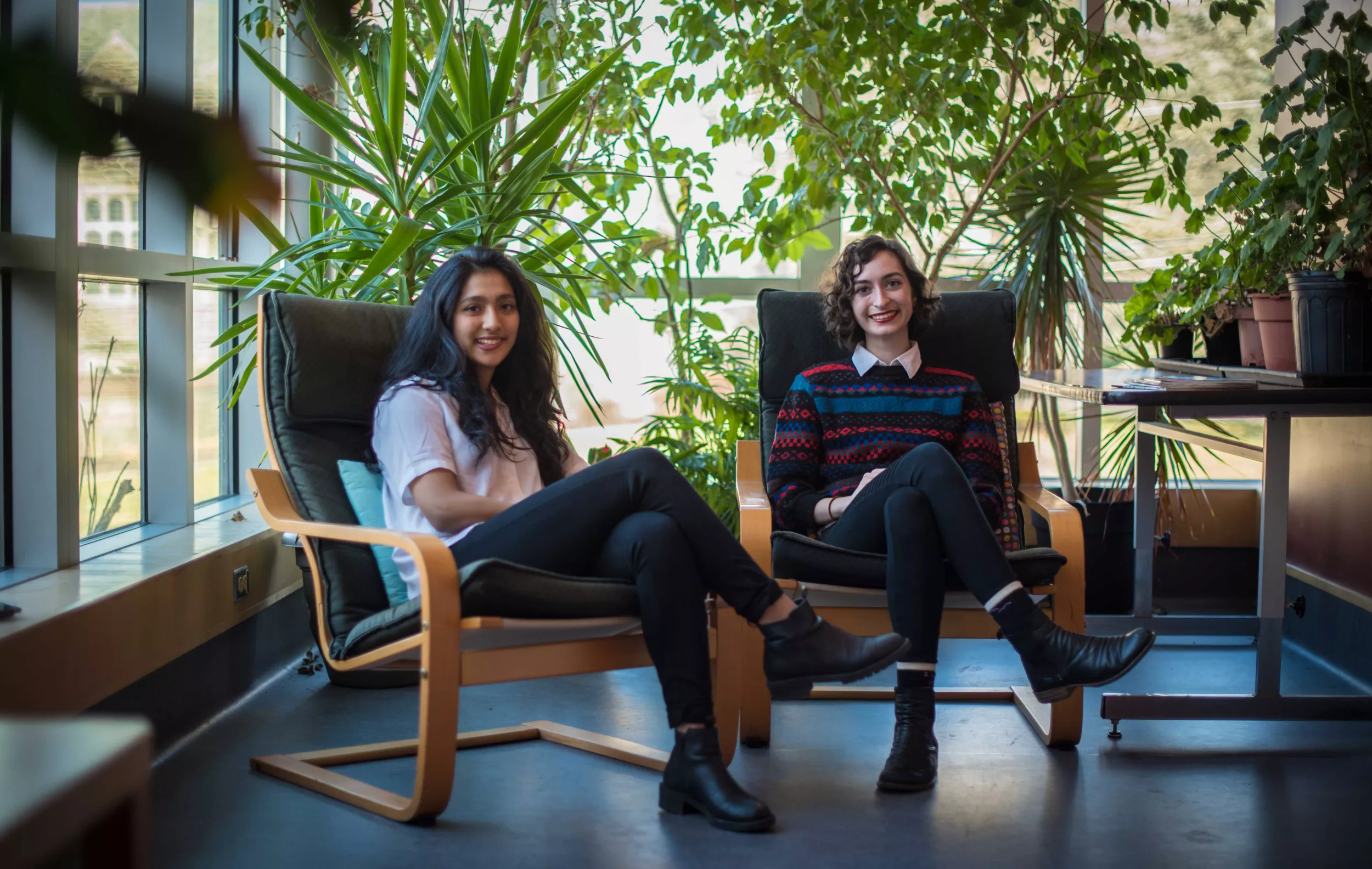Do you think you are a good person? You probably are—up to a point, at least.
According to recent research conducted by Priyanka Dutta ’17 and Kate Pellegrini ’17, it turns out that good deeds do not necessarily beget more good deeds, but cultural context can influence a person’s subconscious attitude towards morality.
Priyanka and Kate look into the human tendency to do good deeds (or not) in their study “Moral Licensing as Acquired Behavior.”
Moral licensing describes the concept that each of us has a subconscious “good quota” that influences whether we behave morally or immorally.
“You’d think that if you do a good act, you’re more willing to do good in the next iterations, but actually the literature says that you commit selfish acts if you commit a good one first,” says Kate.
Kate and Priyanka wanted to examine this phenomenon cross-culturally, comparing how eastern and western concepts of morality influence how individuals license their morality, and to do so they looked at populations in India, Taiwan, and the United States.
“We were expecting to see that moral licensing would be more present in the U.S. population and less present in the eastern populations because of the influence of different religions and cultural concepts such as karma,” says Priyanka.
Over the summer, Kate and Priyanka were stationed in Portland and Mumbai, respectively, collecting data for their study, supervised by Louisa Egan Brad, who was formerly an assistant professor at Bryn Mawr and now teaches at the University of Portland.
For their study, Kate and Priyanka recruited a randomized sample of 192 people in public spaces and assigned them to one of two groups: the hard group or the easy group.
Each participant received a questionnaire asking if they regularly complete a variety of environmental conservation tasks.
The easy group were asked about whether or not they completed relatively easy activities such as recycling paper, while the hard questionnaire including more difficult activities, such as making one’s own shampoo.
After the participants completed the questionnaire, they were told that they had been entered into a raffle for $60, and that they had the option to either keep the money for themselves or give it to charity.
Kate explains that according to moral licensing, people are more likely to donate the money if they have been made to feel guilty about their actions.
“We saw moral consistency in the eastern countries, which means that in India and Taiwan, people still donated more money, irrespective of whether they were in the easy or difficult group,” says Priyanka.
The western subjects, however, donated less money to charity when they felt themselves to be environmentally responsible after completing the questionnaire.
Kate and Priyanka, recently received Deans Office Funding to present their findings at the 2017 conference for the Society for Personality and Social Psychology in San Antonio, Texas.
Excited to have conducted the first study of moral licensing cross-culturally, Kate and Priyanka feel as fascinated by psychology as ever, and both wish to continue their psychology careers after Bryn Mawr.
“I think I would be doing a disservice to myself to not continue with psychology,” says Kate. “It’s a newer field, so new things are always being discovered. It’s awesome that we’re part of that revolution.”
